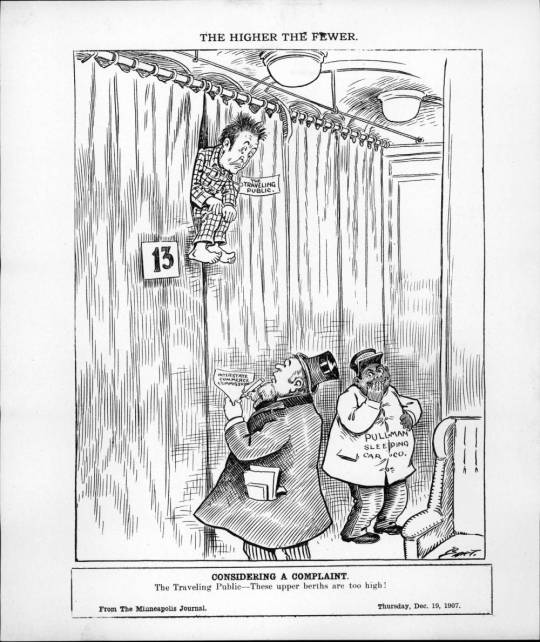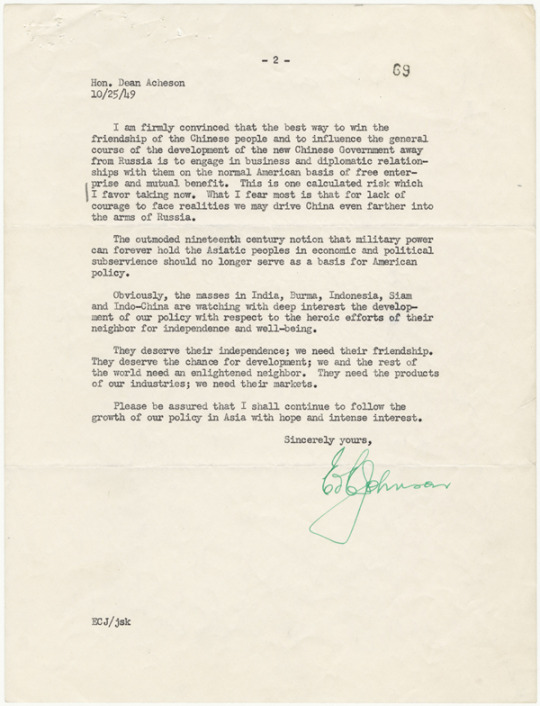#Interstate commerce
Explore tagged Tumblr posts
Text
I wonder how the folks who call marriage and the family "idols" prioritize them in relation to NATO, the FDIC, the American public school system, the establishment clause, the interstate commerce clause, psychiatry, or boomers' retirement funds.
Or whether they're willing to take the Hezekiah option against them the way they do against marriage and the family.
#Neoliberalism#Each and every one of those things allows the American middle class to pursue hedonistic lifestyles#Hedonism#idolatry#idols#NATO#FDIC#WTO#Public school system#Establishment clause#Interstate commerce#Ok boomer#not ok boomer#Psychiatry
2 notes
·
View notes
Text
Navigating the Double-Edged Sword of Federal Cannabis Legalization
By Sundie Seefried The debate over federal cannabis legalization and state autonomy is one of the most closely watched issues in the U.S., with both significant opportunities and substantial challenges at stake. As more states legalize cannabis for both medical and recreational use, the lack of a unified federal framework has created a patchwork of regulations, leaving businesses and consumers to…
0 notes
Text
Potato Shortage Grips Jamshedpur as West Bengal Halts Supply
Price Surge Hits Consumers as Traders Urge Government Intervention Jamshedpur faces potato scarcity due to West Bengal’s supply ban, prompting local business leaders to seek Chief Minister’s help in resolving the crisis. JAMSHEDPUR – The recent prohibition of potato exports from West Bengal to Jharkhand has resulted in a severe shortage in Jamshedpur, which has caused prices to increase…
#जनजीवन#food security#Government Intervention#interstate commerce#Jamshedpur crisis#Jharkhand Chief Minister#Life#potato shortage#price surge#Singhbhum Chamber of Commerce#Vegetable prices#West Bengal export ban
0 notes
Text
Discover the shocking tale of a miscarriage of justice against President Trump and its ripple effects: a trucker boycott of New York City. Delve into the controversial fallout, the socio-political implications, and the broader discourse surrounding this unprecedented event - or just listen to my snarky ranting!
#Truckers#Boycott#Transportation#NYC#Protests#Supply chain#Economic impact#Trucking industry#City regulations#Trade#Logistics#Urban policies#Economic justice#Trucking rights#Labor movement#Traffic congestion#Civic engagement#Business disruptions#Interstate commerce#Policy advocacy#Trump judgment
0 notes
Text
Surveillance pricing

THIS WEEKEND (June 7–9), I'm in AMHERST, NEW YORK to keynote the 25th Annual Media Ecology Association Convention and accept the Neil Postman Award for Career Achievement in Public Intellectual Activity.

Correction, 7 June 2024: The initial version of this article erroneously described Jeffrey Roper as the founder of ATPCO. He benefited from ATPCO, but did not co-found it. The initial version of this article called ATPCO "an illegal airline price-fixing service"; while ATPCO provides information that the airlines use to set prices, it does not set prices itself, and while the DOJ investigated the company, they did not pursue a judgment declaring the service to be illegal. I regret the error.
Noted anti-capitalist agitator Adam Smith had it right: "People of the same trade seldom meet together, even for merriment and diversion, but the conversation ends in a conspiracy against the public, or in some contrivance to raise prices."
Despite being a raving commie loon, Smith's observation was so undeniably true that regulators, policymakers, and economists couldn't help but acknowledge that it was true. The trustbusting era was defined by this idea: if we let the number of companies in a sector get too small, or if we let one or a few companies get too big, they'll eventually start to rig prices.
What's more, once an industry contracts corporate gigantism, it will become too big to jail, able to outspend and overpower the regulators charged with reining in its cheating. Anyone who believes Smith's self-evident maxim had to accept its conclusion: that companies had to be kept smaller than the state that regulated them. This wasn't about "punishing bigness" – it was the necessary precondition for a functioning market economy.
We kept companies small for the same reason that we limited the height of skyscrapers: not because we opposed height, or failed to appreciate the value of a really good penthouse view – rather, to keep the building from falling over and wrecking all the adjacent buildings and the lives of the people inside them.
Starting in the neoliberal era – Carter, then Reagan – we changed our tune. We liked big business. A business that got big was doing something right. It was perverse to shut down our best companies. Instead, we'd simply ban big companies from rigging prices. This was called the "consumer welfare" theory of antitrust. It was a total failure.
40 years later, nearly every industry is dominated by a handful of companies, and these companies price-gouge us with abandon. Worse, they use their gigantic ripoff winnings to fill war-chests that fund the corruption of democracy, capturing regulators so that they can rip us off even more, while ignoring labor, privacy and environmental law and ducking taxes.
It turns out that keeping gigantic, opaque, complex corporations honest is really hard. They have so many ways to shuffle money around that it's nearly impossible to figure out what they're doing. Digitalization makes things a million times worse, because computers allow businesses to alter their processes so they operate differently for every customer, and even for every interaction.
This is Dieselgate times a billion: VW rigged its cars to detect when they were undergoing emissions testing and switch to a less polluting, more compliant mode. But when they were on the open road, they spewed lethal quantities of toxic gas, killing people by the thousands. Computers don't make corporate leaders more evil, but they let evil corporate leaders execute far more complex and nefarious plans. Digitalization is a corporate moral hazard, making it just too easy and tempting to rig the game.
That's why Toyota, the largest car-maker in the world, just did Dieselgate again, more than a decade later. Digitalization is a temptation no giant company can resist:
https://www.bbc.com/news/articles/c1wwj1p2wdyo
For forty years, pro-monopoly cheerleaders insisted that we could allow companies to grow to unimaginable scale and still prevent cheating. They passed rules banning companies from explicitly forming agreements to rig prices. About ten seconds later, new middlemen popped up offering "information brokerages" that helped companies rig prices without talking to one another.
Take Agri Stats: the country's hyperconcentrated meatpacking industry pays Agri Stats to "consult on prices." They provide Agri Stats with a list of their prices, and then Agri Stats suggests changes based on its analysis. What does that analysis consist of? Comparing the company's prices to its competitors, who are also Agri Stats customers:
https://pluralistic.net/2023/10/04/dont-let-your-meat-loaf/#meaty-beaty-big-and-bouncy
In other words, Agri Stats finds the highest price for each product in the sector, then "advises" all the companies with lower prices to raise their prices to the "competitive" level, creating a one-way ratchet that sends the price of food higher and higher.
More and more sectors have an Agri Stats, and digitalization has made this price-gouging system faster, more efficient, and accessible to sectors with less concentration. Landlords, for example, have tapped into Realpage, a "data broker" that the same thing to your rent that Agri Stats does to meat prices. Realpage requires the landlords who sign up for its service to accept its "recommendations" on minimum rents, ensuring that prices only go up:
https://popular.info/p/feds-raid-corporate-landlord-escalating
Writing for The American Prospect, Luke Goldstein lays out the many ways in which these digital intermediaries have supercharged the business of price-rigging:
https://prospect.org/economy/2024-06-05-three-algorithms-in-a-room/
Goldstein identifies a kind of patient zero for this ripoff epidemic: Jeffrey Roper, a former Alaska Air exec who benefited from a service that helps airlines set prices. ATPCO was investigated by the DOJ in the 1990s, but the enforcers lost their nerve and settled with the company, which agreed to apply some ornamental fig-leafs to its collusion-machine. Even those cosmetic changes were seemingly a bridge too far Roper, who left the US.
But he came back to serve as Realpage's "principal scientist" – the architect of a nationwide scheme to make rental housing vastly more expensive. For Roper, the barrier to low rents was empathy: landlords felt stirrings of shame when they made shelter unaffordable to working people. Roper called these people "idiots" who sentimentality "costs the whole system."
Sticking a rent-gouging computer between landlords and the people whose lives they ruin is a classic "accountability sink," as described in Dan Davies' new book "The Unaccountability Machine: Why Big Systems Make Terrible Decisions – and How The World Lost its Mind":
https://profilebooks.com/work/the-unaccountability-machine/
It's a form of "empiricism washing": if computers are working in the abstract realm of pure numbers, they're just moving the objective facts of the quantitative realm into the squishy, imperfect qualitative world. Davies' interview on Trashfuture is excellent:
https://trashfuturepodcast.podbean.com/e/fire-sale-at-the-accountability-store-feat-dan-davies/
To rig prices, an industry has to solve three problems: the problem of coming to an agreement to fix prices (economists call this "the collective action problem"); the problem of coming up with a price; and the problem of actually changing prices from moment to moment. This is the ripoff triangle, and like a triangle, it has many stable configurations.
The more concentrated an industry is, the easier it is to decide to rig prices. But if the industry has the benefit of digitalization, it can swap the flexibility and speed of computers for the low collective action costs from concentration. For example, grocers that switch to e-ink shelf tags can make instantaneous price-changes, meaning that every price change is less consequential – if sales fall off after a price-hike, the company can lower them again at the press of a button. That means they can collude less explicitly but still raise prices:
https://pluralistic.net/2024/03/26/glitchbread/#electronic-shelf-tags
My name for this digital flexibility is "twiddling." Businesses with digital back-ends can alter their "business logic" from second to second, and present different prices, payouts, rankings and other key parts of the deal to every supplier or customer they interact with:
https://pluralistic.net/2023/02/19/twiddler/
Not only does twiddling make it easier to rip off suppliers, workers and customers, it also makes these crimes harder to detect. Twiddling made Dieselgate possible, and it also underpinned "Greyball," Uber's secret strategy of refusing to send cars to pick up transportation regulators who would then be able to see firsthand how many laws the company was violating:
https://www.nytimes.com/2017/03/03/technology/uber-greyball-program-evade-authorities.html
Twiddling is so easy that it has brought price-fixing to smaller companies and less concentrated sectors, though the biggest companies still commit crimes on a scale that put these bit-players to shame. In The Prospect, David Dayen investigates the "personalized pricing" ripoff that has turned every transaction into a potential crime-scene:
https://prospect.org/economy/2024-06-04-one-person-one-price/
"Personalized pricing" is the idea that everything you buy should be priced based on analysis of commercial surveillance data that predicts the maximum amount you are willing to pay.
Proponents of this idea – like Harvard's Pricing Lab with its "Billion Prices Project" – insist that this isn't a way to rip you off. Instead, it lets companies lower prices for people who have less ability to pay:
https://thebillionpricesproject.com/
This kind of weaponized credulity is totally on-brand for the pro-monopoly revolution. It's the same wishful thinking that led regulators to encourage monopolies while insisting that it would be possible to prevent "bad" monopolies from raising prices. And, as with monopolies, "personalized pricing" leads to an overall increase in prices. In econspeak, it is a "transfer of wealth from consumer to the seller."
"Personalized pricing" is one of those cuddly euphemisms that should make the hair on the back of your neck stand up. A more apt name for this practice is surveillance pricing, because the "personalization" depends on the vast underground empire of nonconsensual data-harvesting, a gnarly hairball of ad-tech companies, data-brokers, and digital devices with built-in surveillance, from smart speakers to cars:
https://pluralistic.net/2024/03/12/market-failure/#car-wars
Much of this surveillance would be impractical, because no one wants their car, printer, speaker, watch, phone, or insulin-pump to spy on them. The flexibility of digital computers means that users always have the technical ability to change how these gadgets work, so they no longer spy on their users. But an explosion of IP law has made this kind of modification illegal:
https://locusmag.com/2020/09/cory-doctorow-ip/
This is why apps are ground zero for surveillance pricing. The web is an open platform, and web-browsers are legal to modify. The majority of web users have installed ad-blockers that interfere with the surveillance that makes surveillance pricing possible:
https://doc.searls.com/2023/11/11/how-is-the-worlds-biggest-boycott-doing/
But apps are a closed platform, and reverse-engineering and modifying an app is a literal felony – several felonies, in fact. An app is just a web-page skinned with enough IP to make it a felony to modify it to protect your consumer, privacy or labor rights:
https://pluralistic.net/2024/05/07/treacherous-computing/#rewilding-the-internet
(Google is leading a charge to turn the web into the kind of enshittifier's paradise that apps represent, blocking the use of privacy plugins and proposing changes to browser architecture that would allow them to felonize modifying a browser without permission:)
https://pluralistic.net/2023/08/02/self-incrimination/#wei-bai-bai
Apps are a twiddler's playground. Not only can they "customize" every interaction you have with them, but they can block you (or researchers seeking to help you) from recording and analyzing the app's activities. Worse: digital transactions are intimate, contained to the palm of your hand. The grocer whose e-ink shelf-tags flicker and reprice their offerings every few seconds can be collectively observed by people who are in the same place and can start a conversation about, say, whether to come back that night a throw a brick through the store's window to express their displeasure. A digital transaction is a lonely thing, atomized and intrinsically shielded from a public response.
That shielding is hugely important. The public hates surveillance pricing. Time and again, through all of American history, there have been massive and consequential revolts against the idea that every price should be different for every buyer. The Interstate Commerce Commission was founded after Grangers rose up against the rail companies' use of "personalized pricing" to gouge farmers.
Companies know this, which is why surveillance pricing happens in secret. Over and over, every day, you are being gouged through surveillance pricing. The sellers you interact with won't tell you about it, so to root out this practice, we have to look at the B2B sales-pitches from the companies that sell twiddling tools.
One of these companies is Plexure, partly owned by McDonald's, which provides the surveillance-pricing back-ends for McD's, Ikea, 7-Eleven, White Castle and others – basically, any time a company gives you a hard-sell to order via its apps rather than its storefronts or its website, you should assume you're getting twiddled, hard.
These companies use the enshittification playbook to trap you into using their apps. First, they offer discounts to customers who order through their apps – then, once the customers are fully committed to shopping via app, they introduce surveillance pricing and start to jack up the prices.
For example, Plexure boasts that it can predict what day a given customer is getting paid on and use that information to raise prices on all the goods the customer shops for on that day, on the assumption that you're willing to pay more when you've got a healthy bank balance.
The surveillance pricing industry represents another reason for everything you use to spy on you – any data your "smart" TV or Nest thermostat or Ring doorbell can steal from you can be readily monetized – just sell it to a surveillance pricing company, which will use it to figure out how to charge you more for everything you buy, from rent to Happy Meals.
But the vast market for surveillance data is also a potential weakness for the industry. Put frankly: the commercial surveillance industry has a lot of enemies. The only thing it has going for it is that so many of these enemies don't know that what's they're really upset about is surveillance.
Some people are upset because they think Facebook made Grampy into a Qanon. Others, because they think Insta gave their kid anorexia. Some think Tiktok is brainwashing millennials into quoting Osama bin Laden. Some are upset because the cops use Google location data to round up Black Lives Matter protesters, or Jan 6 insurrectionists. Some are angry about deepfake porn. Some are angry because Black people are targeted with ads for overpriced loans or colleges:
https://www.theregister.com/2024/06/04/meta_ad_algorithm_discrimination/
And some people are angry because surveillance feeds surveillance pricing. The thing is, whatever else all these people are angry about, they're all angry about surveillance. Are you angry that ad-tech is stealing a 51% share of news revenue? You're actually angry about surveillance. Are you angry that "AI" is being used to automatically reject resumes on racial, age or gender grounds? You're actually angry about surveillance.
There's a very useful analogy here to the history of the ecology movement. As James Boyle has long said, before the term "ecology" came along, there were people who cared about a lot of issues that seemed unconnected. You care about owls, I care about the ozone layer. What's the connection between charismatic nocturnal avians and the gaseous composition of the upper atmosphere? The term ecology took a thousand issues and welded them together into one movement.
That's what's on the horizon for privacy. The US hasn't had a new federal consumer privacy law since 1988, when Congress acted to ban video-store clerks from telling the newspapers what VHS cassettes you were renting:
https://en.wikipedia.org/wiki/Video_Privacy_Protection_Act
We are desperately overdue for a new consumer privacy law, but every time this comes up, the pro-surveillance coalition defeats the effort. but as people who care about conspiratorialism, kids' mental health, spying by foreign adversaries, phishing and fraud, and surveillance pricing all come together, they will be an unbeatable coalition:
https://pluralistic.net/2023/12/06/privacy-first/#but-not-just-privacy
Meanwhile, the US government is actually starting to take on these ripoff artists. The FTC is working to shut down data-brokers:
https://pluralistic.net/2023/08/16/the-second-best-time-is-now/#the-point-of-a-system-is-what-it-does
The FBI is raiding landlords to build a case against Frontpage and other rent price-fixers:
https://popular.info/p/feds-raid-corporate-landlord-escalating
Agri Stats is facing a DoJ lawsuit:
https://www.nationalhogfarmer.com/market-news/agri-stats-loses-motions-to-transfer-dismiss-in-doj-antitrust-case
Not every federal agency has gotten the message, though. Trump's Fed Chairman, Jerome Powell – whom Biden kept on the job – has been hiking interest rates in a bid to reduce our purchasing power by making millions of Americans poorer and/or unemployed. He's doing this to fight inflation, on the theory that inflation is being cause by us being too well-off, and therefore trying to buy more goods than are for sale.
But of course, interest rates are inflationary: when interest rates go up, it gets more expensive to pay your credit card bills, lease your car, and pay a mortgage. And where we see the price of goods shooting up, there's abundant evidence that this is the result of greedflation – companies jacking up their prices and blaming inflation. Interest rate hawks say that greedflation is impossible: if one company raises its prices, its competitors will swoop in and steal their customers with lower prices.
Maybe they would do that – if they didn't have a toolbox full of algorithmic twiddling options and a deep trove of surveillance data that let them all raise prices together:
https://prospect.org/blogs-and-newsletters/tap/2024-06-05-time-for-fed-to-meet-ftc/
Someone needs to read some Adam Smith to Chairman Powell: "People of the same trade seldom meet together, even for merriment and diversion, but the conversation ends in a conspiracy against the public, or in some contrivance to raise prices."

If you'd like an essay-formatted version of this post to read or share, here's a link to it on pluralistic.net, my surveillance-free, ad-free, tracker-free blog:
https://pluralistic.net/2024/06/05/your-price-named/#privacy-first-again

Image: Cryteria (modified) https://commons.wikimedia.org/wiki/File:HAL9000.svg
CC BY 3.0 https://creativecommons.org/licenses/by/3.0/deed.en
#pluralistic#david dayen#the american prospect#surveillance advertising#commercial surveillance#predictive pricing#monopolism#monopolies#antitrust#unfair and deceptive method of competition#ftc act Section 5#ftca5#ripoffs#surveillance#twiddling#ip#apps#apps are shit#ziprecruiter#personalized pricing#price gouging#just and reasonable#interstate commerce act#one person one price#surveillance pricing#privacy first#billion prices project#ecommerce#ninetailed#cortado group
426 notes
·
View notes
Text
Most farmers I know resent the farm programs and only participate because they wouldn’t be competitive if they didn’t.
But… see Wickard v. Fillburn, a Supreme Court case from 1942 that basically fucked over the entire country and allowed all this crap to happen.
It’s the court case that basically said interstate commerce is anything and everything we say it is, so the federal government can get involved with literally any action you take regardless of whether or not it ever gets remotely close to crossing state lines or commerce. It’s a bullshit ruling that drastically empowered the bureaucracy in this country to an insane degree.
So blame Mr. “If you don’t decide cases the way I want, I’ll expand the Supreme Court and pack the Supreme Court with my judges until I get my way, and I’ll get away with it because I’m so gosh darn popular” Franklin Delano Roosevelt for all this regulatory bullshit.
from my curious non-expert point of view, I am not seeing a way to fix food and agriculture systems without increasing the proportion of people who are farmers
#farming#I have very strong feeling about Wickard v. Filburn#‘affects interstate commerce in the aggregate’#is right up there with ‘emanations and penumbras’#and#‘separate but equal’#for terrible terrible law#that has no basis in reality or the constitution#fucking hate it#so much#bad law is bad law#and is the source of so many of our problems in this country#2 of those 3 have been overturned#let’s go for a hat trick
4K notes
·
View notes
Text

The Higher the Fewer - Considering a Complaint
December 19, 1907
The Traveling Public is seated two stories up in a train car, in bed 13. The Interstate Commerce Commission takes notes while a porter from the Pullman Sleeping Car Co. laughs.
The caption reads "The Traveling Public - These upper berths are too high!"
This refers to the prices of upper berths in sleeping cars, which were the same as the more desirable lower berths, leading to a lawsuit demanding lower prices for the upper berths.
From Hennepin County Library
Original available at: https://digitalcollections.hclib.org/digital/collection/Bart/id/5929/rec/1812
#charles bartholomew#political cartoon#railroads#interstate commerce commission#pullman sleeping car company#american history
0 notes
Text
Supreme Court Bracket
Remember that this is a silly Tumblr poll, and these two things are not actually in conflict. So don't get too heated in the notes.


Interstate Commerce is regulated by Congress. The case Gibbons v. Ogden established that interstate commerce is regulated by the U.S. Congress according to the U.S. Constitution, that interstate navigation is fundamental to interstate commerce, and that therefore the power to regulate interstate navigation in this way rests with the U.S. Congress, not with any state legislature.
Pre-Publication Censorship is Unconstitutional. The case Near v. Minnesota is a landmark United States Supreme Court decision that found that prior restraints on publication violate freedom of the press as protected under the First Amendment to the United States Constitution, a principle that was applied to free speech generally in subsequent jurisprudence. The Court ruled that a Minnesota law that targeted publishers of ''malicious'' or ''scandalous'' newspapers violated the First Amendment to the United States Constitution.
#xkcd#polls#tumblr polls#polls on tumblr#poll tournament#supreme court#law#us law#us politics#american politics#Gibbons v. Ogden#Near v. Minnesota#Interstate Commerce is regulated by Congress#Pre-Publication Censorship is Unconstitutional#0x7v0x8#Supreme Court Round 2
0 notes
Text
With @vladdyissues sharing this gif in that poll about Amity Park's location, it seems pretty set that Amity Park is in Indiana, not Illinois.

Leaving aside where that clip has been through all the debates about its location, it does mean we could do something fun with it.
You see, one of the few things I know about Indiana is that time has been...inconsistently handled there, historically.
I don't mean they flip-flop on whether to use DST. I mean they flip flopped between using DST and not using DST, and between using Eastern Time versus Central time, not on a state level, but on a county level. State law only made every county observe DST in 2006.
From Wikipedia:
The tz database lists 11 time zones for Indiana, where each zone is defined as a geographic area that observed the same offsets from UTC since January 1, 1970.
And that's not all! In 1978, some guy named Thomas Shanks published The American Atlas, in which he "identified 345 areas in the state with a different time zone history for each."
345 areas. In 1978, before several additional county-level changes to time zones.
The wikipedia article I'm pulling this from, Time in Indiana (yes it really has its own article) also says:
Attitudes began to change in the 1990s, as Indiana's time zone situation was seen as impeding the state's economic growth. Interstate travel and commerce were difficult as people wondered, "what time is it in Indiana?"
That's right, the situation was so comically bad that it affected the economy. Incredible.
What I'm saying is: You know that occasional idea where Amity Park's just a little bit out of time from everywhere around it? Just a little off-kilter, hard to find by accident?
In Indiana, time is already weird. How hard would it be for ghosts to make that a little bit more literal?
324 notes
·
View notes
Text
The Interstate Obscenities Definition Act
It looks like The Interstate Obscenities Definition act (IODA) will be presented to a senate committee tomorrow. I'm not sure if this is a hearing or meeting or just formal procedure when introducing bills. Regardless, if you haven't already started adding this to your call rotation, please start now. This bill has been introduced twice before with no traction, but at a time where censorship laws are on the rise this is not a bill to sleep on, even if it has a low chance of passing. This bill would ban pornographic material, but it is written so vaguely that it would also target books, television, movies, video games, and the LGBTQ+ community as a whole. When Trump's FTC director has publicly said he wants to go after the "trans agenda" this is not the bill we should let slip by, so CALL YOUR REPS! I'll link to some resources below:
A call script with how to contract your reps:
A thread about the bill with more information:

Lists of committee members who will be introduced to the bill tomorrow... Call them and your reps if you can


More Information:
When you call also mention the other bad internet bills out there that we are fighting against like KOSA and the Screen Act


#obscenities definition act#oppose the obscenities definition act#interstate obscenity definition act#kosa#us politics#stop kosa#censorship#bad internet bills#internet censorship#ao3#lgtbqia+#screen act#call to action#resources
124 notes
·
View notes
Text
Grown in Oklahoma, Smoked in New York: Illicit Marijuana’s Legal Roots
Surplus weed produced in states like Oklahoma is increasingly ending up in New York, fueling its illicit market and complicating the state’s efforts to expand legal cannabis sales. In the dead of night last April, state drug agents in Oklahoma intercepted an 18-wheeler rumbling east toward the Arkansas border smuggling 7,000 pounds of marijuana hidden in security camera boxes. The weed was from…

View On WordPress
0 notes
Text
I'm a lover of standards, mostly because they're carefully designed semi-taxonomies that have to bump up against the real world and deal with complications that happen when used beyond scope, or when time marches forward and the assumptions the standard was made under crumble.
I was looking at a pill I take and saw that it had two symbols on it, a circle next to a pinched circle, and I thought, "huh, this must be part of some identification system", but I was confused, because 1) circle and pinched circle seem difficult to manually enter into a system and 2) order seems difficult to determine, which isn't a problem per se, but does unnecessarily lower the number of bits the engraving gives. It struck me that this seemed, on its face, like a bad standard, and I thought "there's probably an interesting reason it's like this".
Turns out there is no standard!
For purposes of this section, code imprint means any single letter or number or any combination of letters and numbers, including, e.g., words, company name, and National Drug Code, or a mark, symbol, logo, or monogram, or a combination of letters, numbers, and marks or symbols, assigned by a drug firm to a specific drug product.
This is crazy to me. The system is just "eh, make sure it's uniquely identifiable". This is caveman shit. And the system is not even "have a unique code imprint", it's
Unless exempted under § 206.7, no drug product in solid oral dosage form may be introduced or delivered for introduction into interstate commerce unless it is clearly marked or imprinted with a code imprint that, in conjunction with the product's size, shape, and color, permits the unique identification of the drug product and the manufacturer or distributor of the product.
So two pills can have the same code imprint so long as they're different colors! Fuck the colorblind, I guess? Not to mention how much it sucks having to enter some of this shit into a computer system, or how much it must suck to maintain a searchable database of drugs.
This is one of those cases where I really would have expected a bunch of intelligent people to have done their best to make a system that worked well under 99% of circumstances and then buckled under some kind of real world constraints or shifting landscapes.
Instead, it's a free-for-all, just total lack of coherent vision and respect for standards in a place where it feels like there really ought to be standards, given how regulated the industry is.
(One of the big use cases here is "person found unconscious with unknown pills", which is time critical and a case where you want a person with no training or experience to be able to correctly transmit information rather than trying to decide whether the pill's color is teal or blue, or whether the symbol is a pinched circle or a regular circle.)
(And yeah, part of the reason this has never come to fruition is because Big Pharma just doesn't want to do it, since it would mean retooling some of their production lines or something, and would also allow for less in the way of branding. They're required to put on the imprint code, so ... I don't know, smells like bullshit to me, or like a case for gradually phasing in enforcement. Hardly the most pressing issue facing the United States healthcare system, I know.)
102 notes
·
View notes
Text

On This Day in 1961: The original 13 Freedom Riders left Washington, D.C. for New Orleans on two Greyhound buses.
Freedom Riders were civil rights activists who made bus trips throughout the South protesting segregation by using “whites-only” restrooms and lunch counters at bus stations. The group was often confronted by police officers, bystanders, and violent mobs.
In the fall of 1961, the Freedom Riders’ activism led the U.S. Interstate Commerce Commission to ban segregation in interstate bus travel. 🙌🏿
127 notes
·
View notes
Text
Keep on Truckin'! Anywhere But New York!
When you’re running a senile old man and have to abuse the justice system in a vain attempt to keep his opponent out of the race, maybe you should reconsider your life choice to be a political party. No one expected a fair verdict out of that kangaroo court, or New York for that matter, but the insanely egregious judgment left even my cranky jaw dropping. I’ll spare you the words my cat had to…

View On WordPress
#Boycott#Business disruptions#City regulations#Civic engagement#Economic impact#Economic justice#Interstate commerce#Labor movement#Logistics#NYC#Policy advocacy#Protests#Supply chain#Trade#Traffic congestion#Transportation#Truckers#Trucking industry#Trucking rights#Trump judgment#Urban policies
0 notes
Text
"The historical struggle against colonialism and imperialism ... is waged at the same time as a struggle over the historical and cultural record. One of the first targets, for example, of the Israeli Defense Forces when they entered the Lebanese capital of Beirut in the fall of 1982 was the PLO Research Center and its archives containing the documentary and cultural history of the Palestinian people. Similarly the United States police squadron which in August 1985 arrested in San Juan, Puerto Rico, eleven Puerto Rican independentistas on charges of bank robbery and violation of interstate commerce laws also entered the offices of the journal Pensamiento critico where they confiscated the journal's archival resources as well as its copier and typewriter. The struggle over the historical record is seen from all sides as no less crucial than the armed struggle."
Barbara Harlow, Resistance Literature (1987)
413 notes
·
View notes
Text


Letter from Senator Edwin Johnson to Secretary of State Dean Acheson Urging the United States’ Recognition of the People's Republic of China
Record Group 59: General Records of the Department of StateSeries: Central Decimal FilesFile Unit: 893.01/10-249 to 11-649 [1/3]
United States Senate
Committee on Interstate and Foreign Commerce
October 26, 1949
Hon. Dean Acheson
Secretary of State
Washington, D. C.
My dear Secretary Acheson:
I have watched with great interest the developments in China and the sincere efforts of our State Department to react in an intelligent, realistic and constructive manner to that dynamic situation.
I have sincerely believed that the former policy of military and other support for the Nationalist Government of Chiang Kai Shek has been in error since available evidence has demonstrated the completely corrupt and irresponsible character of that government.
It seems to me we must recognize that after centuries of cruel military and tyrannical oppression, the mass of Chinese people have lost hope and are now turning to a government which paints pretty pictures and might possibly give them needed social and economic change and the peace they want so badly.
It is reported to me that our missionaries whose experience in China is many generations old are unanimously of the opinion that the new government in China should be promptly recognized. It is their experience that this government might possibly cooperate in a forthright manner and might possibly create conditions which will mean progress in their work.
I am informed by various shipping lines, cotton exporters, and other American businessmen who have transacted business in China for 40 years that the new government is eager to conduct normal trade with American businessmen. More than this, these businessmen are fearful that a continued policy of non-recognition may lose to us the Chinese market for many years. Since the British Government and British businessmen plan to make this market the exclusive province of British shipping, it seems desirable that our State Department should promptly take those steps which would protect the interests of American business in China. [complete transcript at link]
55 notes
·
View notes